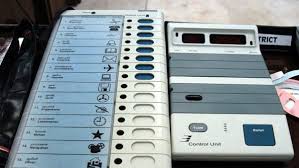The economist Sabyasachi Das, who was an associate professor at the Ashoka University in Sonepat, Haryana, resigned from his post weeks after he published a research paper on the results of the 2019 general elections which triggered a political storm. Two faculty members have confirmed his resignation to The Wire, but no official confirmation has been issued yet from the university. The economist’s article on the possibility of electoral manipulation in the 2019 Lok Sabha elections, where the incumbent Bharatiya Janata Party returned to power with a larger margin than in 2014.
Although Das stressed that only 11 seats were covered by his study of the methods and impacts he had examined in a paper published on July 25, 2023 entitled, ‘Democratic Backsliding in the World’s Most Democratic Democracy.’ The research generated lively social media commentary. Political leaders of the Bharatiya Janata Party also objected to findings made by a scholar.
Things heated up again on August 1 when Ashoka University issued a statement that distanced itself from Das’s report, saying it was bewildered by the speculation and debate he had generated. Das, when The Wire contacted him on Sunday night to see if he’d be available for an interview, he stated that at this moment I don’t engage in the media. In the meantime, I am concentrating on getting my newspaper published so that I can consider media involvement. Das did not respond to a direct question on whether he had resigned from his post.
The Wire asked whether Das had left voluntarily, and a member of the faculty said, ‘You know how this is always some kind of grey area. You are pushed into a position where you have no other option but to resign in order to save your dignity. ‘Before Das submitted his report,’ another Ashoka scholar told me, ‘we know that there was a lot going on in the background behind shut doors. But another faculty member who is familiar with the development says, “We tried to make it as difficult as possible for him to remain by convincing him to stay. But, He submitted his resignation”.
The student newspaper, The Edict, said that Das was forced to resign from the university because of his frequent criticism of the government of the Union in his articles for the Indian Express, and that it was a markedly similar situation two years ago, when the former vice chancellor of the University of Ashoka, Bhanu Pratap Mehta, was forced to resign because of his frequent criticism of the government of the Union.
It added “This university’s administration is now being confronted with a backlash almost similar to the one it encountered back then, from students, alumni and academics all over the globe for not giving its professors support in their work independent of the university.”
Ashoka University’s response to Das’s resignation remains absent, yet Ashwini Deshpande, the head of the Economics Department, seemingly confirmed it in a tweet. Jayati Ghosh ,the University of Massachusetts expressed disappointment in the senior economics faculty’s lack of solidarity with Das, emphasizing that silence perpetuates injustice. Deshpande defended their actions, highlighting their efforts behind the scenes. Das’s departure may impact the Department’s ability to teach Development Economics, endangering students’ academic progress.
Das’s resignation renews concerns about academic freedom in India. Ashoka University drew attention by distancing itself from Das’s research, implying doubts about its quality. This move faced backlash from students and academics, given the handling of the resignation of Pratap Bhanu Mehta in 2021. Critics see this as a sign of democratic regression in academia. In 2017, the university’s founders reportedly asked faculty members to resign over signing a petition related to Kashmir. The situation surrounding Das’s resignation at Ashoka University underscores ongoing concerns about academic freedom in India and the need for institutions to uphold open discourse and scholarly integrity.
In any democracy, the election commission has a critical role to play, and it must not only be fair, but also be seen to be fair. Unfortunately, it is not possible due to structural factors like the EC being under Union government control and a series of events that have taken place in recent years. In an ideal situation, Das’ paper setting out his explanation of the unusual anomalies detected in research would be responded to by the EC.

